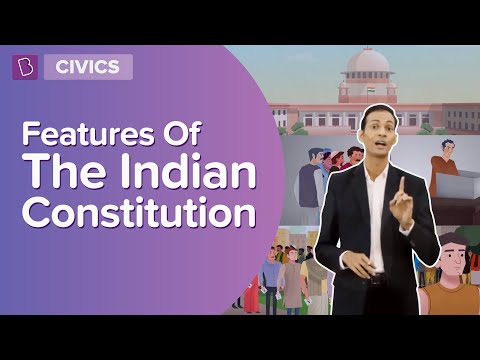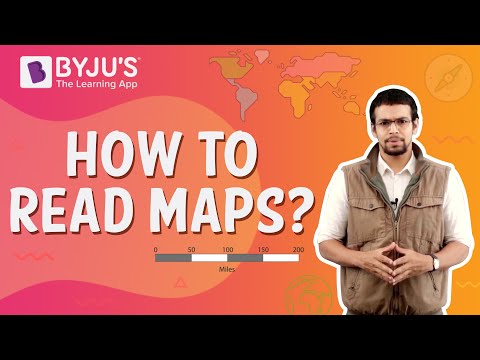What are Social Sciences?
The Social Sciences comprise disciplines that aim to study various aspects of human society, which include its functioning and development, interaction and interpersonal relationships between individuals, etc. The social sciences can be divided into several disciplines that primarily focus on a specific aspect of society and its institutions.
They are:
- Political Science
- Sociology
- Economics
- Psychology
- Anthropology
- History
- Geography, etc.
The aforementioned subjects focus on specific fields of study related to society, culture, human behaviour, language, institutions, and systems that govern and make up societies. At the university level, these subjects are further divided into specialised areas like criminal psychology, international economics, demography, ethnic studies, econometrics, etc., which gives students an array of options to choose from, based on their interests and career plans.
Scope and Importance of Social Sciences
Social Science is a discipline that broadens the horizons of young minds. It not only lays a strong foundation for understanding the complexity of a society and its systems, but it also delves into its genesis. Various disciplines that are part of the social sciences aid students to understand real-world problems like unemployment, poverty, inflation, illiteracy, and climate change, and make them more socially conscious individuals.
Social Sciences and humanities play a very important role in making children appreciate their history, culture, language, etc. This not only fosters creativity, critical thinking skills, and ingenuity in children, but also makes them well-rounded individuals. Over the years, the scope of social sciences has widened, and a plethora of opportunities await young people who want to pursue a career in this field. A good understanding of the social sciences can help in paving a finer path for the future.
In the following sections, we will discuss the role and importance of geography, political science and history, and what a student can gain by learning these subjects.
Political Science
Political science is a field of study that focuses on governance at various levels, including political theories and principles, the electoral process, the role of a constitution, and so on.
It also contains political ideas, processes, and institutions that aid in economic manoeuvring. It helps students understand the nuances of policy making, and the factors that play a vital role in effective governance.
Political Science, for the Indian curriculum, broadly covers the following areas:
- What is Politics?
- Political Theory
- Political ideologies like liberalism, communism, socialism, etc.
- Concepts like Federalism, Sovereignty, Secularism, Liberty, Democracy, Equality, Social Justice
- Different kinds of Rights and the role of the State
- Sources and kinds of Law
- Citizenship and its importance
- The Constitution of India, its philosophy and comparison
- Election and Representation
- Executive
- Legislature
- Judiciary
- Local governments
- Rise of popular movements
- Recent developments in Indian Politics
- Contemporary World Politics:
- The Cold War era
- International organisations
- Globalisation
- Contemporary South Asia
- US and World Politics, etc
- Non-Aligned Movement
- Regional Cooperation
History
History is a window into the past. It helps us comprehend the evolution of societies, our culture, language, art, architecture, etc.
It not only aids in understanding important events and personalities that shaped the world but also the present-day issues that originated in the past. History can be divided into Ancient Indian history, Mediaeval Indian history, Modern Indian history, and World history.
The areas covered under these four categories are given below.
I – Ancient Indian History
- Prehistoric Age in India
- Indus Valley Civilization
- Vedic civilization and Vedic literature
- Persian and Greek Invasions of Ancient India
- Rise and Growth of the Magadha Empire
- Buddha and His Teachings
- Jainism
- Chandragupta Maurya and the Rise of the Mauryan Empire
- Emperor Ashoka and his Edicts
- Post-Mauryan India – Sunga Dynasty
- Post-Mauryan India – The Satavahanas
- The Sakas
- Kushana Empire
- Gupta Empire
- King Harshavardhana
- Pallavas
- Pala Empire
- Chalukya Dynasty
- Vakatakas
- Post-Mauryan Age – Crafts, Trade & Towns
- Mahajanapadas
- Cheras, Cholas and Pandyas
- Sangam Literature
II – Mediaeval Indian History
- Bhakti Movement
- The North Indian Kingdoms – The Rajputs
- The Kingdoms of the Deccan
- Mughal Empire – Babur
- Rashtrakutas
- Humayun
- Sultanate of Delhi
- Sur Dynasty
- Akbar
- Mamluk Dynasty
- Khilji Dynasty
- Tughlaq Dynasty
- Arab and Turkish Invasions
- Sayyid and Lodi Dynasties
- The Vijayanagar Empire
III – Modern Indian History
- Battle of Plassey
- Third Battle of Panipat
- Battle of Buxar
- Anglo-Mysore Wars
- Anglo-Maratha Wars
- The Regulating Act of 1773
- Pitt’s India Act, 1784
- The Permanent Settlement of Bengal
- Ryotwari and Mahalwari Systems of Land Revenue
- Charter Act of 1813
- Charter Act of 1833
- Anglo-Sikh Wars
- Doctrine of Lapse
- Carnatic wars
- First War of Independence
- Government of India Act 1858
- Indian Councils Act 1861
- Morley-Minto Reforms
- Partition of Bengal 1905
- The moderates and the extremists
- Indian Freedom Movement
- Government of India Act 1919
- The Lucknow Pact, 1916
- Non-Cooperation Movement
- Home Rule Movement
- Salt Satyagraha
- Simon Commission
- Gandhi-Irwin Pact
- Round Table Conferences
- Government of India Act 1935
- Poona Pact
- Cripps Mission
- Quit India Movement
- Nehru Report
- C R Formula
- August Offer
- Wavell Plan
- Cabinet Mission
- Constituent Assembly of India
- Indian Independence Act 1947
- Indian National Army (INA)
IV – World History
- Early Societies, human evolution, tools, language, art, hunter-gatherers in Africa
- Writing and city life: Mesopotamia and its geography, urbanisation, literacy, temples and kings
- Empires: The Central Islamic lands and nomadic empires
- The three orders (clergy, nobility, peasants), changing cultural traditions and confrontation of cultures
- Industrial Revolution
- European Imperialism
- Paths to Modernisation
Geography
The term “geography” is derived from two Greek words: “geo”, which means earth, and “graphos,” meaning description. Therefore, geography can be broadly defined as the “description of the earth”.
The study of geography can help in understanding issues and several phenomena like climate change, cyclones, landslides, heatwaves, forest fires, etc., which have been in the news for quite some time. It cultivates the habit of observation in students, which piques their curiosity and makes them appreciate their surroundings and environment.
Geography for classes 6 to 12 broadly comprises the following topics:
I – Physical Geography
- Earth and its interior
- Distribution of oceans and continents
- Geomorphic process
- Various landforms and their evolution
- Solar radiation, heat balance and radiation
- Atmosphere circulation and weather systems
- Water in the atmosphere
- Movements of ocean water
- World climate and climate change
- Ecology, biodiversity and conservation
II – India and its Physical Environment
- Location, structure and physiography
- Climate, drainage system, important river basins, soil and natural vegetation
- Natural hazards and disasters
- Union territories, states and their capitals
- National parks in India
- Forest cover in India, etc
III – Human Geography
- Population, its distribution, density, composition and growth
- Migration, its types and composition
- Human settlements
- Human development and its approaches
- Water resources
- Land resources and agriculture: crops and cropping seasons, types of farming, etc
- Mineral and energy resources
- Manufacturing industries
- Transport and communication
- International trade
Recommended Videos
Nationalism in India – History

Money and Credit – Economics

The Indian Constitution – Civics

How to Read Maps? – Geography

Frequently Asked Questions about Social Science
What are social sciences?
What are the job opportunities available to students who take up Social Sciences?
Is studying Social Science easy?
Which subjects does Social Science include?
What is Physical Geography?
Why is it important to study Political Science?
What are the various branches of Economics?
In high school, economics is generally divided into macroeconomics and microeconomics. However, at the University level, Economics is further divided into subjects like Indian economy, International Economics, Econometrics, Environmental Economics, Industrial economics, Public Economics and Finance etc.
What are the components of Modern Indian history?
What are the topics that students have to study in World history at high school?
In high school, students generally have to study the following topics in world history: Early Societies, human evolution, writing and city life, various important empires, Industrial Revolution, European Imperialism etc.
What does Mediaeval Indian history comprise?
Mediaeval Indian history focuses on the Bhakti Movement, major Arab and Turkish invasions, rule of important kings, their kingdoms and dynasties like that of the Rajputs, Babur, Humayun, Rashtrakutas, the Vijayanagar Empire, Khilji Dynasty, Tughlaq Dynasty, etc.
Comments